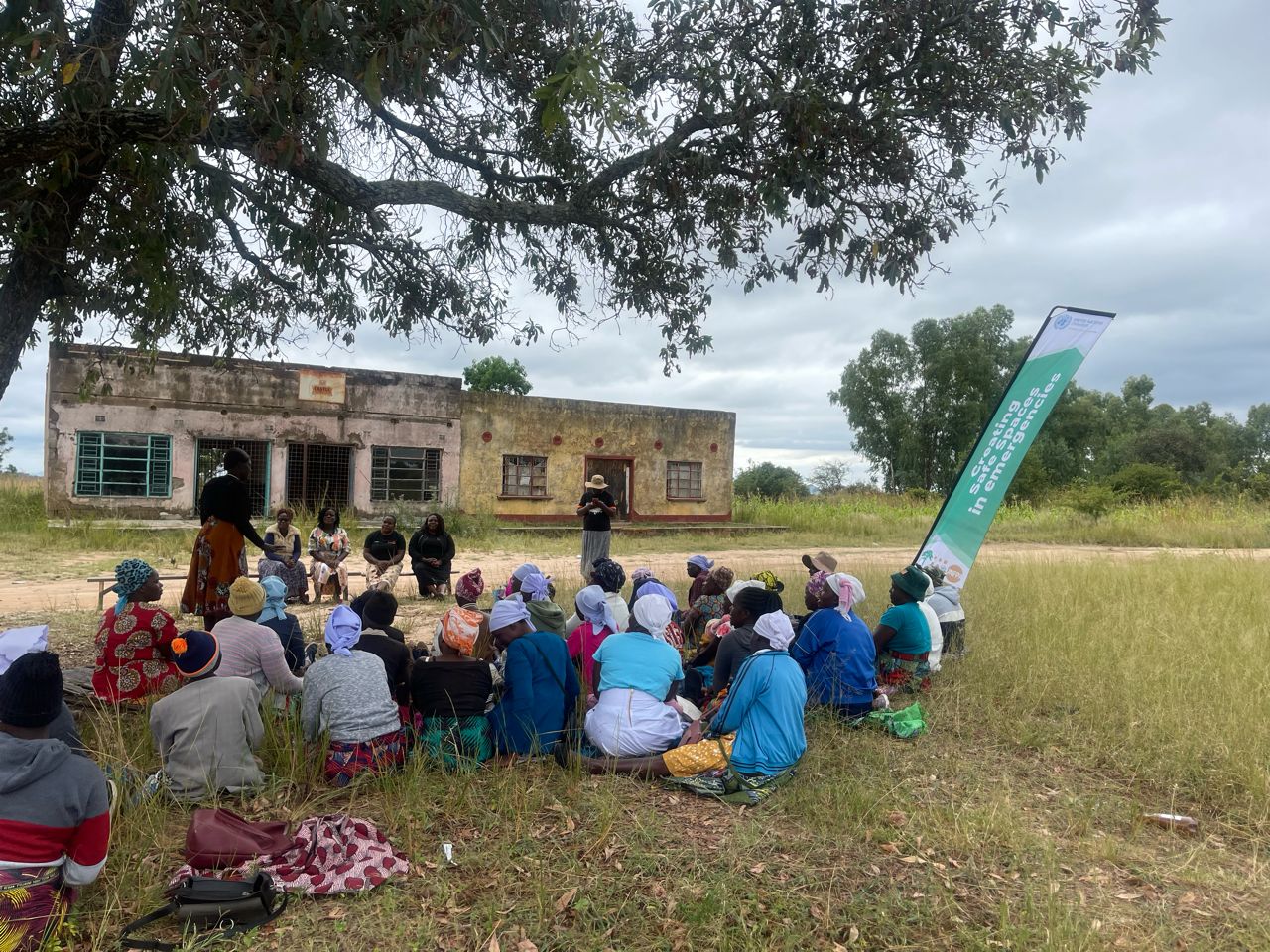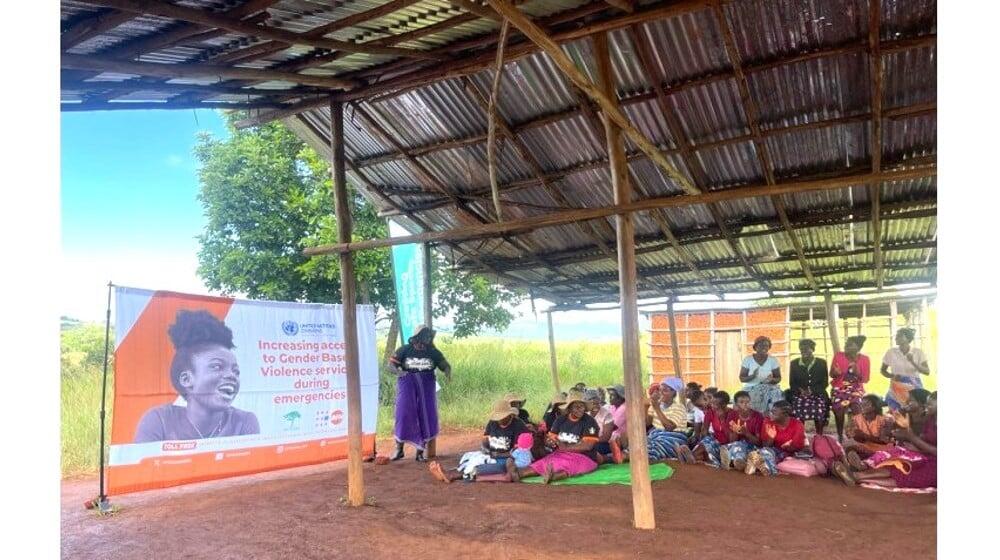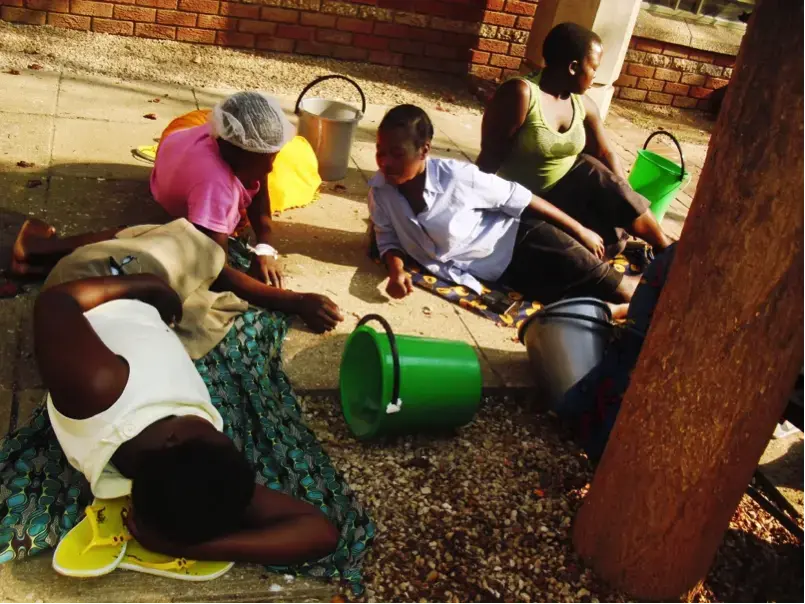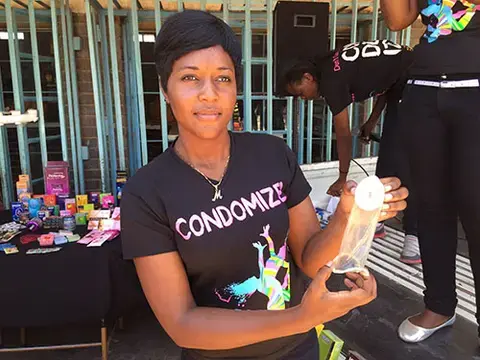Chiredzi, Zimbabwe - Prisca,* a 22-year-old young woman who lives in Chiredzi Rural, has faced a harrowing ordeal. One night, while asleep in a room with two toddlers, an unknown man broke into her family home. What followed was a terrifying struggle for survival.
The perpetrator attempted to rape her, subjecting her to a brutal assault, and she was involved in a fight for her life.
“He threw fertilizer in my mouth every time I attempted to scream for help,” Prisca recounts, her voice trembling with the memory. “After a violent brawl in the dark, I was able to successfully fend off the intruder and he ran away.”
The aftermath of the attack left Prisca deeply traumatized, her mind haunted by the terrifying events. The young toddlers, witnesses to the violence, were also deeply affected by the ordeal.
In the morning, she notified her parents who accompanied her to Chambuta Police station to report the matter.
Upon reporting the incident to the police, Prisca's father was directed to seek additional support from the Musasa Project, a partner of UNFPA operating nearby. Recognizing the urgency of the situation, the Musasa team swiftly connected Prisca with a specialized counselor through their "Shuttle Counsellor" program.
However, the road to recovery proved to be fraught with challenges for Prisca and others like her in rural communities. Transport hurdles, coupled with long distances to access assistance and the associated costs, often act as formidable barriers, preventing many survivors of Gender-Based Violence (GBV) from accessing the critical services they desperately need.
The “Shuttle Service” concept helps survivors to access critical services through provision of transport and services on wheels. The shuttle service is manned by a specialized GBV counsellor and a driver, who provide support to survivors in collaboration with community-based volunteers known as Behaviour Change Facilitators and specialised service providers.
Despite receiving counselling from the Shuttle Counselor, Prisca struggled with the deep trauma stemming from the assault. The hurtful comments and rumors circulating within the community, insinuating she had been raped, added to her distress.
In an effort to provide Prisca with a fresh start away from the traumatic environment, her father suggested she relocate. However, the family's financial constraints made this option unfeasible. Recognizing the urgency of the situation, the Shuttle Counsellor proposed a temporary solution: placing Prisca in a shelter until she felt ready to reintegrate into her community.
Arrangements were swiftly made, and Prisca was transported to Chiredzi town with the assistance of Musasa personnel. From there, she was accompanied to Masvingo, where she found refuge in a shelter for a period of 14 days, providing her with a safe haven as she began her journey towards healing and recovery.
As part of her care plan, she underwent extensive counselling, received medical checkups on her Sexual and Reproductive Health and had an opportunity to learn new socio-economic skills. Upon her release from the shelter, she was ferried back to her parents’ home in Chiredzi.
The UNFPA partner, Musasa, maintained regular communication with Prisca's family, providing updates on her progress. They facilitated a heartwarming reunion between Prisca and her parents, offering guidance on enhancing security measures within their homestead and providing crucial support to their daughter as in her journey of recovery from the trauma.
Prisca expressed immense relief as her parents learned from Musasa that she had not been sexually assaulted during the incident. Medical evidence corroborated her account, reassuring her family of the truthfulness of her testimony regarding the extent of the ordeal. This revelation brought a sense of solace to Prisca and her parents, alleviating some of the lingering anxieties surrounding the traumatic event.

The clarification provided by this information set the record straight within Prisca's community, dispelling any misconceptions about the events that transpired. Her stay at the shelter and the support services provided raised awareness among community members about the available resources for survivors of GBV.
In addition, the dissemination of accurate information helped debunk the false belief circulating in the community that Prisca had been sold to an organization following the incident. This newfound clarity not only addressed misinformation but also fostered a more supportive and informed environment for survivors of gender-based violence in Prisca's community.
During Prisca's absence, the police continued their investigations into the perpetrator. They reached out to Musasa with an update, disclosing that they had obtained the name of the assailant, who remained at large. The authorities assured Musasa of their work in apprehending the perpetrator, signaling a continued effort to seek justice for Prisca and hold the perpetrator accountable for his actions.
It is through funding from Central Emergency Response Fund and under the programme "Strengthening GBV services for vulnerable women and girls in affected districts by El Nino drought-impact" that women and girls such as Prisca are being supported with critical services to move on from abuse and pick up the pieces of their lives.
In her recovery from the abuse she endured, Prisca now participates in Safe Spaces, a vital intervention designed to aid survivors of GBV. True to its name, a Safe Space is a designated area, whether formal or informal, where women and girls find both physical and emotional security. In this context, “safe” denotes an environment free from trauma, undue stress, violence, or the threat of abuse. It provides a refuge where women and girls, the intended beneficiaries, can freely express themselves without fear of judgment or harm, fostering a sense of comfort and empowerment.
The key objectives of Safe Spaces are to provide an area where women and girls can: socialize and re-build their social networks; receive social support; acquire relevant skills; access safe and non-stigmatizing multi-sectorial GBV response services (psychosocial, legal, medical) and receive information on issues relating to women’s rights, health, and services.
“I am very happy that I have gone back to my job as a teacher for preschool learners (Early Childhood Development) in my community,” says Prisca. “I thought I had lost it all. I was actually inspired to rewrite the two subjects I failed during my form four examinations (Ordinary Level Studies) while at the shelter. I will re-write these subjects in November 2024. After this I want to study even further.”
By Bertha Shoko with additional reporting from Musasa




